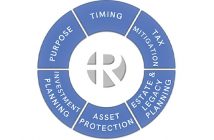April 15 is right around the corner, and if you expect to owe 1040 income tax, but don’t have the resources with which to pay it, you are in the same boat as many Americans. First of all, don’t panic. Federal officers are not going to show up at your home on April 16 to throw you in prison, levy your paychecks, seize your bank accounts or take your house (assuming the only thing you’ve done wrong is failed to pay your 2014 1040).
Granted, if you do nothing for an extended period of time, you could wind up facing some of these consequences. However, if you take the proper measures, odds are good that you can avoid severe consequences. Regardless of your financial circumstances, there are certain actions that you can take now that can save you a lot of money and headaches down the road.
One of the biggest mistakes that people without the means to pay an April 15 tax bill make is that they fail to file their 1040 or a valid extension by April 15. My guess is that they reason: “I can’t pay, so why file?” Unfortunately, this reasoning is faulty and can also be very costly. Failing to file by the due date (including extensions) will typically result in a failure-to-file penalty, which is usually 5 percent for each month or part of a month that a return is late, up to a 25 percent maximum.
So, if you were to owe say, $10,000, and neglected to file an extension or your 1040 until after September 15, you would likely wind up with a $2,500 failure-to-file penalty whenever your tax liability gets assessed. Ouch! Don’t fall into this trap. This penalty is completely avoidable if you simply file your return or a valid extension by April 15.
Filing an extension (Form 4868) postpones the assessment of your tax liability, and will typically postpone having your tax liability being assigned to the IRS Collection Division. In other words, filing an extension will usually provide you with more time to either come up with the money that you owe or otherwise resolve your tax liability before severe consequences come into play. Therefore, unless you know for certain that you will have the money to pay off the tax liability in the near future (e.g. within three months), you are probably best off filing the extension.
Assuming you do opt to file an extension, be sure that you remember to file your 1040 by October 15. Otherwise, you will likely get hit with the same failure-to-file penalty discussed above.
Another huge mistake that many people in this scenario make is that they fail to pay at least some of the anticipated 1040 liability even though they have the wherewithal to do so. If you can access money that isn’t absolutely necessary for your living expenses, then do so, and pay as much as you can by April 15. You are probably going to get hit with failure-to-pay penalties since you can’t pay in full by April 15. The failure to pay penalties will apply to the amount you were short. If, for example, you are going to owe $10,000, but only have access to $6,000, then pay the $6,000 by April 15. This way, you will only owe failure-to-pay penalties on the remaining $4,000 liability rather than the entire $10,000.
Failure-to-pay penalties are generally ½ of 1 percent per month initially, and can increase to 1 percent per month after the IRS issues a Notice of Intent to Levy, up to a maximum of 25 percent. Thus, if you were to owe $10,000 in tax and paid nothing, you could eventually wind up with a $2,500 failure-to-pay penalty, while if you paid $6,000 toward your $10,000 liability by April 15, that penalty could only reach a maximum of $1,000. Keep in mind that these penalties start adding up after April 15 regardless of whether you file an extension.
Once you remit as much as you can by April 15, continue to make periodic payments towards your tax liability as additional funds become available (check payable to United States Treasury, social security number and “apply to 2014 1040 tax” in the memo line). Doing so has several significant benefits. First, it will reduce your total failure-to-pay penalties. Second, it will either eliminate your tax liability over time or, at least, make your liability more manageable before you become at risk of severe consequences. Third, it will demonstrate good faith in the event that you can’t pay the debt off before your case gets assigned to collections. In my experience, IRS collection officers tend to go “a little easier” on people who have made a voluntary effort to try to get the liability paid off as opposed to those who didn’t pay anything. In some cases, going “a little easier” can be the difference between success and disaster.
Another important thing to consider is whether you are likely to find yourself in the same situation on April 15, 2016. The last thing you want to do is fall into a pattern of owing every year. It’s a vicious cycle. Seek advice from a tax professional to determine whether you should be making quarterly estimated 1040 deposits, and make sure you set aside enough money so that you can make them.
There are several other situations when a person with a tax liability would be well served to seek professional advice. If there are legitimate extenuating circumstances that prevented her from paying or filing, it may be possible to get penalties abated (removed). If the taxpayer doesn’t have much equity in his assets and not much income beyond that necessary for living expenses, it may be possible to settle the tax debt for a small fraction of the total with an offer in compromise. A good tax resolution professional can identify when it would benefit the taxpayer to pursue an offer in compromise or a penalty abatement, and can give the taxpayer the best chance of succeeding with one of these strategies.
Finally, it’s a good idea for anyone who owes at least $10,000 that he cannot pay to consult with a tax resolution professional. Many tax resolution firms, including my firm—Fortress Financial Services—offer a free consultation during which options tailored to the individual’s circumstances can be explored. A good pro can help avoid enforced collections (garnished paychecks, frozen bank accounts, seized assets, etc.) and negotiate the most favorable terms possible given the circumstances.
Fortress Financial Services Inc., 1011 SW Emkay Drive, Suite 201, Bend, 877-777-7430 x861





